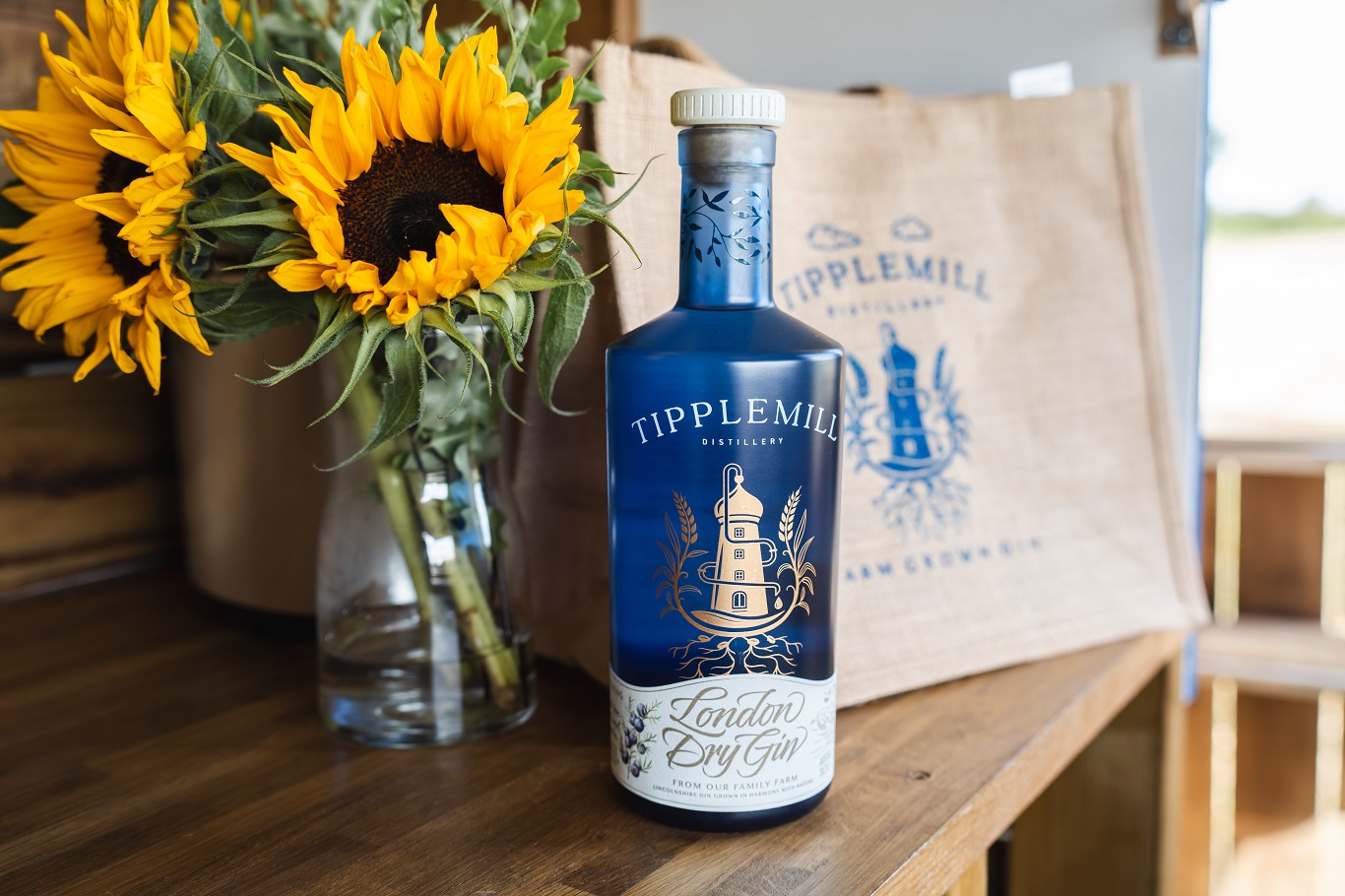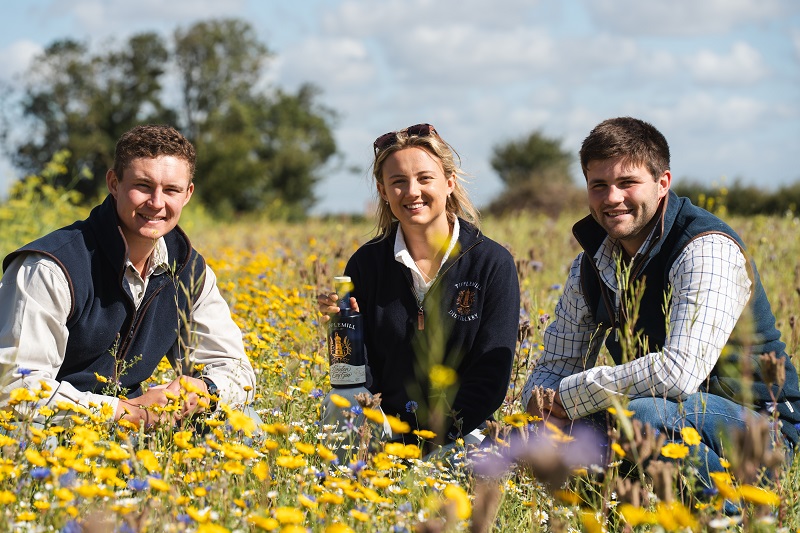Gin diversification

From Wheat Fields to Gin Glasses: The Craven Family’s Journey
For Lily Craven, connecting farmers with consumers was the inspiration behind transforming wheat into gin. This connection, along with a rich family history in farming, laid the foundation for Tipplemill Gin, a product that bridges the gap between the agricultural roots of the Craven family and the enjoyment of a premium spirit.
A Legacy of Farming
The Craven family has been farming the land around Moulton Windmill for five generations. Frank Craven, the original miller, purchased the surrounding land to ensure a steady supply of wheat for milling. Today, the Craven family business remains a close-knit operation: Lily runs the gin business, her partner Jim manages the agronomy, and her brother James oversees the arable farming.
The Idea Behind Tipplemill Gin
Lily’s journey into the gin business began when she returned to the farm from university during the Covid pandemic. "I wanted to find something to do with our wheat crop that could link farmers to a product and reconnect them with consumers," she explains. Gin, a sociable and conversational drink, seemed the perfect choice. The family’s commitment to quality in their wheat crop naturally extended to their gin, leading them to the London Dry category, known for its stringent quality criteria.
What Defines London Dry Gin:
- The base spirit must be distilled to at least 96% ABV.
- Only natural botanicals are permitted; no synthetic or artificial flavourings.
- Botanicals are added during the distillation process.
- Only water can be added post-distillation.
- It must be at least 37.5% ABV.
Lily was drawn to this category because its premium, clean, and pure character reflects the British countryside.
Crafting Tipplemill Gin
The journey from wheat grain to gin begins with the wind. Moulton Windmill, the tallest working windmill in the UK, operates every Wednesday, provided the wind blows between 19-25mph, the optimal speed for consistent milling. "We learned early on that milling provides great consistency. You don’t want fine flour like for baking; just crush the kernels to get a high yield of alcohol," Lily explains.
After milling, the wheat is bagged and hoisted into the mill’s storage bins, using wind power again. The wheat is then transported to Ramsbury Distillery in Wiltshire, a partner chosen for its shared commitment to sustainability and excellence. Ramsbury handles the distillation process, transforming the wheat into a 96% ABV base spirit through a series of fermentation and purification steps. The final transformation into gin occurs in a traditional copper pot still, where the base spirit soaks with botanicals for 24 hours before being gently heated.

Launch and Distribution
Three years after Lily conceived the idea, the first bottles of Tipplemill Gin went on sale in September 2023. The family took their time, ensuring they partnered with suppliers who shared their sustainability ethos. For example, their stoppers are sourced from sixth-generation farmers in Portugal known for sustainable cork forestry.
Tipplemill Gin is now available online and in local restaurants and hotels across Lincolnshire and South Yorkshire. Lily has also started building a base in London through networking. "The whole point of diversifying was to make connections. Farming can be isolating, and you don’t have direct customer contact. Speaking to bar teams and creating personal connections allows us to share our story and highlight our unique selling points," says Lily.
Commitment to Sustainability
Sustainability is a core value for the Craven family, influencing every aspect of their farming and gin production. They are a LEAF (Linking Environment And Farming) certified farm, dedicating nearly 20% of their land to nature. "We want efficient farming and high-quality crops. We use different cover crops and have wildflower meadows for bees. We don’t mow until just before harvest, with margins between six to eight metres wide," Lily explains.
Their sustainable practices ensure the land remains fertile and productive for future generations, allowing them to continue farming the same land Frank Craven bought a hundred years ago.
Looking Ahead
The future of Tipplemill Gin looks promising, with plans to introduce flavoured gins using British fruit. "We’re exploring the use of British fruit to create natural, flavoured gins without artificial sweeteners. Finding a British fruit grower with similar practices to ours would be fantastic," Lily shares.
Advice for Aspiring Diversifiers
Lily offers two key pieces of advice for farmers looking to diversify: speak to people and know you don’t have to do everything yourself. "Don’t be afraid to ask for help. Being transparent about your methods can lead to valuable assistance and learning opportunities from others," she advises.